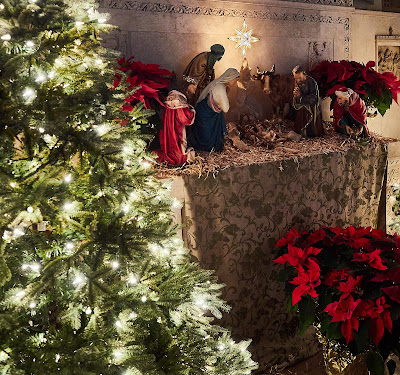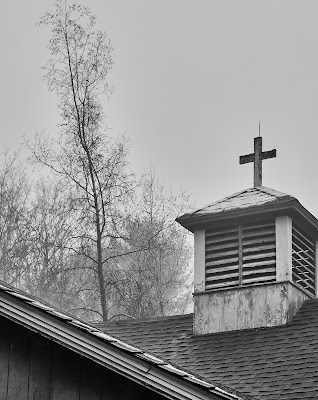Right to Life Weekend
23 January 2022
Equality Begins in the Womb was the theme for the 2022 March for Life that stepped off two days ago in D.C. It states a truth that should be obvious. Alas, the discrimination begins outside the womb sometimes the moment the pregnancy is known driven by social conditioning, government fiat, and abuse of medical technology.
Abortion can have, and has already had, disastrous consequences for the individual, the family, society, and the world at large. It will take generations to undo the damage that has already been done, if it can be undone at all.
An article in the Washington Post dated April 18, 2018 began with the following: "Nothing like this has happened in human history. A combination of cultural preferences, government decree, and modern medical technology in the world’s two largest countries has created a gender imbalance on a continental scale. Men outnumber women by 70 million in China and India (combined)." That represents ten times the population of Massachusetts. These dramatic imbalances are having, and will continue to have, devastating effects on the life of society in general, family life, rural and urban life, and the future of children.
However, inequality in the womb extends beyond the simple question of a child's sex, to questions of health status, cognitive abilities, future abilities, and other characteristics. Iceland has almost exterminated Down's syndrome through what appears to be mandatory abortion if pre-natal tests reveal evidence of trisomy 21. In the U.S. approximately 63% of the children carrying three copies of chromosome 21 are aborted. Margaret Sanger, foundress of Planned Parenthood, who was both a vicious racist and a strong proponent of eugenics, would be thrilled by those statistics.
Pre-birth screening for rare diseases has become a very lucrative business in the U.S. But there is a serious problem. An article in the N.Y. Times Magazine from January 2, just three weeks ago, began by noting that some of the tests looking for missing parts of chromosomes in an effort to make pre-natal diagnoses of congenital disease are wrong 85% of the time. That is an appalling statistic on which to base life and death decisions. Tom Brady's career pass completion rate is 62.4%. There is something wrong when Brady is four times more accurate than some prenatal tests that is ostensibly scientific.
In his 1995 encyclical Evangelium Vitae, St. John Paul II described how eugenic abortion is justified in public opinion through a mentality which accepts life only under certain conditions and rejects it when it is affected--or might be affected--by any limitation, handicap, or illness.
Unfortunately, the devaluation of human lives perceived as potentially non-productive has extended to the elderly, many of whose lives are seen as of little or no value simply as a result of the changes associated with aging. Thus, the increasing move to legislate intentional killing of the sick elderly through what is being euphemistically called "physician prescribed death.
When did dementia in the elderly or trisomy 21 in an unborn child become capital offenses?
During the spring of 1978, a few months before I finished internal medicine residency, I spent six weeks working as a guest registrar with the late Dr. Cicely Saunders, foundress of St. Christopher's Hospice in London. She was a remarkable woman. It is tempting to give an entire homily about her but that will have to wait. However, she was an unapologetically fierce opponent of euthanasia or any other form of assistance in dying. She was equally adamant about artificially prolonging the dying process, thus IVs and ventilators were not in evidence at St. Christopher's.
In an interview article in the British newspaper The Telegraph she described her position: 'Impending death is no excuse for ending life. Rather than rushing to kill the dying in the name of ending their suffering we should focus on practical measures for alleviating their pain and spiritual means to make their final moments worth living.'
It is important to note that opposition to the killing of the sick is not just "a Catholic thing." The Joint Declaration of the Abrahamic Monotheistic Religions on End-of-Life Issues, is a joint declaration of Christians, Jews, and Muslims. It was signed at the Vatican on October 28, 2019 and includes the following: 'Euthanasia and physician-assisted suicide are inherently, morally, and religiously wrong and should be forbidden with no exceptions. Any pressure upon dying patients to end their lives by active and deliberate actions is categorically rejected.'
Humankind has struggled for millennia to discern the meaning and value of life to understand the fundamental equality of all human lives. Are some lives more important than others? How long before we exterminate the ill and dying for economic reasons rather than as purported acts of mercy?
When do we truly realize that while cures are rare
care is always possible and demanded?
Pope John Paul II was prophetic pointed to the danger in the tendency to disguise crimes against life in its early and final stages by using innocuous medical terms that distract attention from the fact that what is involved is the right to life of a human person.
An ideal world wouldn't need a March for Life annually on January 21. But it will be necessary. That is the tragedy of our time.
Requiem aeternam dona eis, Domine,
et lux perpetua luceat eis.
Requiescant in pace.
"Eternal rest grant unto them, O Lord,
and let perpetual light shine upon them.
May they rest in peace."
__________________________
https://myhero.com/Cicely_Saunders_06
The html at the bottom will take you to a site to learn more about Dr. Saunders. Her influence on my life is inestimable.
The photos are from Seven Mile Beach in Gerroa, NSW, Australia. I took them 11 years ago today, on 22 January 2011. This was during the beginning of tertianship when we were still getting to know each other.




















